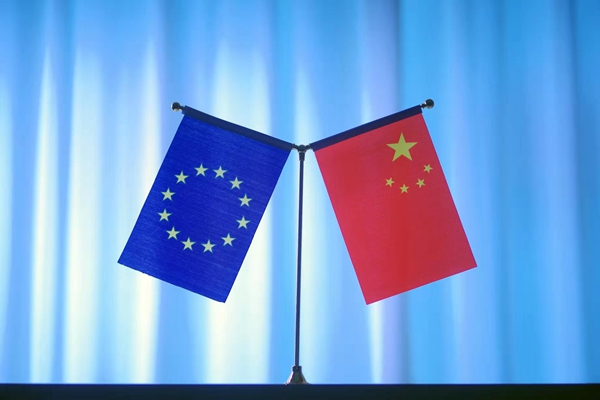As the strategy of European autonomy in the face of Chinese power gathers traction, The Bridge Tank published an issue brief in both the National Defense Review and China Today. An indication that rigorous discussion for a tight negotiation remains possible?
After two years of work, The Bridge Tank has positioned itself in the calibration of the balance of power between the EU and China, in particular by publishing last March issue briefs (For a balance of power – what is at stake around the pre-agreement of principle on investment, co-signed by several former ministers and French ambassadors; and Sino-Western Conflict, analysis and proposals, the latter written by General Eric de la Maisonneuve)
The analyses developed highlight the fact that the two protagonists in their power relations are out of step both in time and space.
The Bridge Tank, active in both Western and Chinese debates, points out the double error of analysis that these two protagonists are making of each other as well as proposals for firm discussions on strategic resources.
This approach was taken up in March 2021 in the “Revue Défense Nationale”, a French strategic and defense reference magazine, an intervention that we then popularized in a high-circulation Chinese-language media, China Today. This bilingual article explicitly analyses the European interests generated by this new partnership with China in conjunction with political, ecological and economic issues.
A degrading context
On Tuesday 4 May 2021, European Commission Vice-President Valdis Dombrovskis announced the suspension of a landmark EU-China investment agreement. This agreement, which has been under construction for seven years, was concluded on 30 December 2020, but was finally cancelled due to the deteriorating political and business climate between the parties.
What role can the EU play?
This agreement, although met with contempt by some European leaders and the international press, offers crucial benefits for the EU’s economic development. In the context of a new Cold War between China and the United States and the health crisis, Europe wants “to cooperate with China is also to cooperate with the RCEP (Regional Comprehensive Economic Partnership), the world’s third largest economic bloc, and thus gain access to the ASEAN countries”.
European sovereignty based on an environmental thread
Since signing the Paris Agreement in 2015, the EU has shown itself to be a pioneer in the fight against global warming and for environmental rights. China, one of the world’s largest emitters of CO2 with 28% of global emissions, has declared its goal to reduce its carbon emissions by 2060.
By working with China, this agreement would allow for a more open and direct dialogue on urban innovations, such as smart cities, developed for the benefit of future generations.
In the face of the rise of China and the United States in the digital field, it is clear that Europe needs to catch up to counter the power game in order to guarantee its strategic autonomy.
Read the issue brief (in French) here

